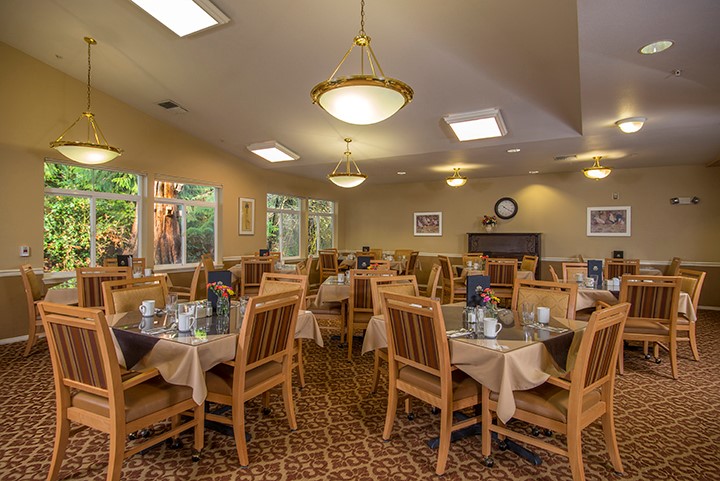Rhode Island Assisted Living: How to pay for, Licensing and Questions to ask…
Rhode Island has some of the most beautiful beaches in all the country. No matter where you live you are no more than an hour away from the majestic coast. The state has some of the most historic and oldest buildings in all the country; it is famous for the amazing seafood and specialty dishes of the region. There are regulations in place to keep Rhode Island one of the greenest and cleanest places in the United States. It’s a wonderful environment to live as a senior citizen. Of the population of Rhode Island nearly 18% are aging adults who may require care at some point. Assisted living communities are a specific level of care in a community setting. Community living allows your loved one the benefit of security and peace of mind. They may experience increased socialization, classes for health and fitness, and quality nutrition plans.
- Rhode Island Assisted Living: How to pay for, Licensing and Questions to ask…
- What does Assisted Living offer in Rhode Island?
- Laws and Regulations for Assisted Living in Rhode Island
- Rhode Island licensing for assisted living communities
- How much does assisted living cost in Rhode Island?
- Financial Assistance in Rhode Island
- How to pay for assisted living
- Common terms that differentiate levels and types of senior living:
- Questions to Ask
- Resources and links related to Senior Living and Care
- Search Other Areas Assisted Living
Assisted living is not the only choice for senior care and housing. There are a variety of long-term senior living options available.
Common terms that differentiate levels and types of senior living:
- Continuing Care Retirement Communities (CCRCs)- typically include independent living, assisted living, residential care and skilled nursing services all on one campus.
- Independent Living Communities – provide residents a setting without the burden of home ownership. Residents commonly live in fully equipped private apartments or cottages from a studio to large two-bedroom units.
- Care Home or Adult Family Care Home- are private residences in a home-like setting that provide care services to a smaller more limited number of residents (typically 5-12 residents, depending on each state’s regulations).
- Assisted Living- provides housing and supportive care in a community setting, but the residents do not require 24-hour nursing care.
- Memory Care- a care setting for residents with memory loss or confusion. The community typically has a “secured” entry for residents that may wander. This care can be provided in different care settings depending on the state licensing requirements.
- Skilled Nursing is state licensed to provide a safe, therapeutic environment for people who require rehabilitative care 24 hours a day.
Assisted Living in Rhode Island
The most common universal term is assisted living. Some other common terms include: care home, residential care, convalescent home, rest home, or retirement home. The lay person sometimes groups all senior housing into the term of “nursing home.”
Assisted living communities are NOT nursing homes.

What does Assisted Living offer in Rhode Island?
Service Plans
Before entering a community or facility, a registered nurse (RN) must complete a thorough evaluation of the individuals health – physical, cognitive, social interactions, activity and functional needs. This is the base of the service plan and must be updated once a year or anytime deemed necessary because of change in health or needs.
Once a month an RN must visit the resident:
- To evaluate health status and review any physician orders.
- Make any recommendations regarding changes in care, when necessary.
- Keep an eye on medication routines.
Services and Assistance
Activities of daily living (ADLs)
- Dressing
- Bathing
- Medication assistance and reminders
- Eating
- Toileting
- Medication management (by appropriate licensed staff)
- Transferring
- Support services – monitoring resident’s personal and social and recreational activities
- Simple healthcare tasks like some wound care, ulcer treatment and prevention care, catheter care
Additional activities and amenities may include:
- Clubs
- Game nights
- Classes
- Parties and other social events
- Planned outings

Laws and Regulations for Assisted Living in Rhode Island
Housing
Living accommodations in Rhode Island may offer apartment-style residences or bedrooms, which provide for single or double occupancy. A single room must be 100 square feet and must be a minimum of eight feet wide. A double room must be a minimum of 160 square feet and 10 feet wide.
Each room type must have a bathroom, closet, wardrobe, and lockers. All residents must have access to a personal lockbox to store and keep any personal belongings of their choice.
The fee schedule is regular monthly rent. There may be additional charges for amenities and any specific services. These community settings are terrific situations for individuals who want to live as independently as possible and direct their own care.
Staffing
Rhode Island does not have a minimum ratio of staff to residents. By the state definition, there must be “Sufficient” staff to residents on premises to maintain necessary care. A certified administrator must be on premises and monitor all operations and oversight of employees who provide care directly to residents.
Rhode Island licensing for assisted living communities
The State of Rhode Island Department of Health licenses and regulated all assisted living facilities in the state. There are regulations in place to maintain standards starting with service plan requirements, staff requirements, background checks for all employees and so.

How much does assisted living cost in Rhode Island?
The statewide average cost for assisted living in Rhode Island is $6,600 per month. On average, residents of the state pay more for these communities and facilities than the national average of $4,500 per month. The neighboring states of Vermont and Connecticut are much closer to the national average, both costing roughly $5,250 per month.
- National average cost per month: $4,500
- Rhode Island: $6,600
- Massachusetts: $6,400
- New Hampshire: $6,100
- Connecticut: $5,100
- Vermont: $5,300
Financial Assistance in Rhode Island
SSI Enhanced Assisted Living Program
This program was created to support those in need with financial assistance. They must be eligible for SSI and have undergone a professional evaluation that has determined they require a level of care which coincides with care available in an assisted living community or facility.
How to pay for assisted living

You want to consider your payment options for assisted living, memory care, and care homes. For these services, Medicare is NOT an option for payment.
The most common payment for these services would be out of pocket Private Pay and assessing a combination of retirement funds, personal savings, and pension payments.
Medicaid can also be an option, be sure to see if you or a loved one qualifies.
Long-Term Care insurance is also a possible option in cases of chronic conditions, be sure to see if you or a loved one qualifies.
For our Veterans and spouses of veterans, be sure to assess Veteran Aid and your eligibility for these benefits.
Medicare – NO:
- Medicare does NOT pay for Assisted Living.
- People 65 years and older and individuals with end stage renal disease are eligible for Medicare benefits, no matter their income.
- Coverage is meant for people in need of short-term care.
Private pay – YES:
- Many families pay for assisted living with private funds.
- Private pay can be a combination of retirement funds, personal savings, and pension payments.
- Family members may contribute funds to pay for assisted living or other senior housing and care.
Medicaid – MAYBE:
- Medicaid provides health coverage to millions of Americans. Eligible participants include: low-income adults, elderly adults and people with disabilities.
- Medicaid is administered by state, according to federal requirements. The program is funded jointly by each state and the federal government.
- Every state has their own individual Medicaid assistance program.
- National guidelines are in place do decipher how states must spend Medicaid money, but with allowances toward the guidelines.
- The state determines what levels of care will be covered by Medicaid, who is eligible, and how much the state will reimburse the care community.
- If you are unsure whether you qualify for Medicaid, you should apply. You may be eligible depending on your household income, family size, age, disability and other factors.
Long-term Care Insurance – MAYBE:
Long term care insurance is a great way to pay for assisted living, and planning ahead is important when considering how to pay for senior housing and care. Nearly 75% of people over the age of 65 will require long-term care and services at some point. Buying into long-term care insurance when a person is in their 50s and 60s is the most common time to do so.
- Long-term care insurance helps cover the costs of chronic medical conditions.
- Individuals and couples with the ability to pay into long-term care insurance have the advantage of a head start in allocating funds for senior care.
Veteran Aid and Assistance – MAYBE:
This benefit is available to some military veterans and surviving spouses who live in an assisted living community and those who have in-home care.
- There are specific guidelines, but a veteran may qualify for as much as $2,050 each month.
- A veteran with a sick spouse may be eligible for $1,600 per month.
- If a veteran has passed, their surviving spouse can qualify for $1,300 per month.

Questions to Ask
Finding a senior living community can be overwhelming. Here are some tips on things to be observant of:
- Make sure the facility is clean and well maintained. You can tell a lot about the operation by noting what is clean and maintained. Are doorknobs loose or damaged? Do you see any frayed carpet or trip hazards?
- Visit during lunch hour to observe what the residents are eating. Ask questions about the nutrition program. Is there diversity in meals, healthy fruits and vegetables served at all meals, drink options?
- Speak to residents and/or family members to learn their perspective.
- Ask about staff and resident engagement. Get a feel for how staff interact with residents.
- Ask about the life enrichment programs. Activities are crucial when it comes to quality of life and play a key role in care for older adults.
- And finally (along with a plethora of more things to consider), get to know the leadership in the building. If you feel good around the Executive Director, Head Nurse, Lead Activities Director and even the Chef or Janitor, it is a good sign you can trust them with the care of your loved one.
Resources and links related to Senior Living and Care
Eldercare Locator is a nationwide service that connects older Americans and their caregivers with trustworthy local support resources. Connect with services such as meals, home care or transportation, or a caregiver education or respite from caregiving responsibilities. The Eldercare Locator is a public service of the Administration on Aging (AoA), an agency of the U.S. Administration for Community Living.
Medicare provides a search feature to find & compare providers near you, most senior housing and care providers are included on CareAvailability.com. Find & compare plans in your area. Determine if you qualify for premium savings
Medicaid offers information on how to apply for Medicaid, eligibility criteria, links to local state offices, and additional resources.
The Alzheimer’s Association is the leading voluntary health organization in Alzheimer’s care, support and research. Whether you are living with Alzheimer’s or caring for someone with the disease, information and resources are available.
